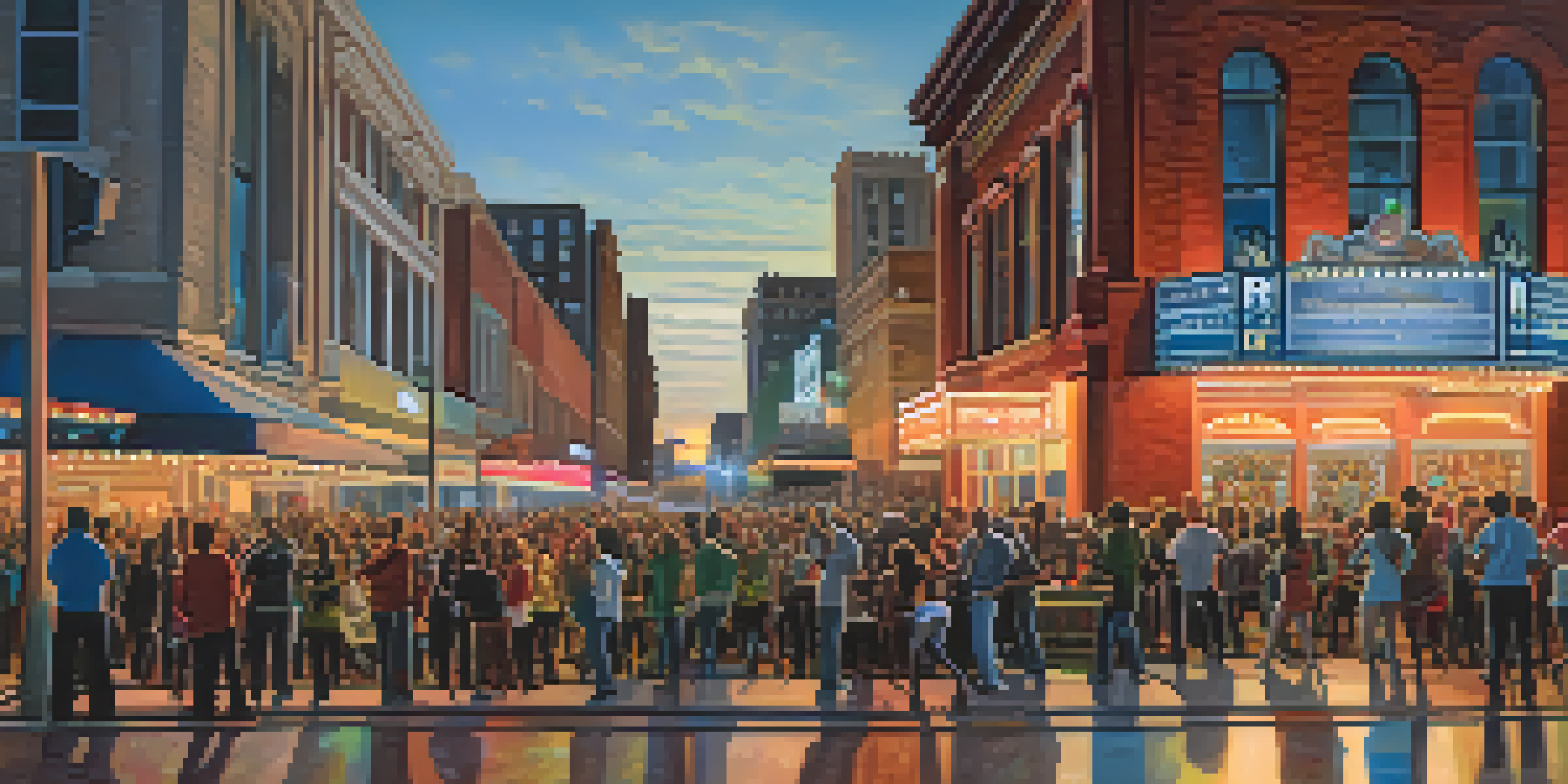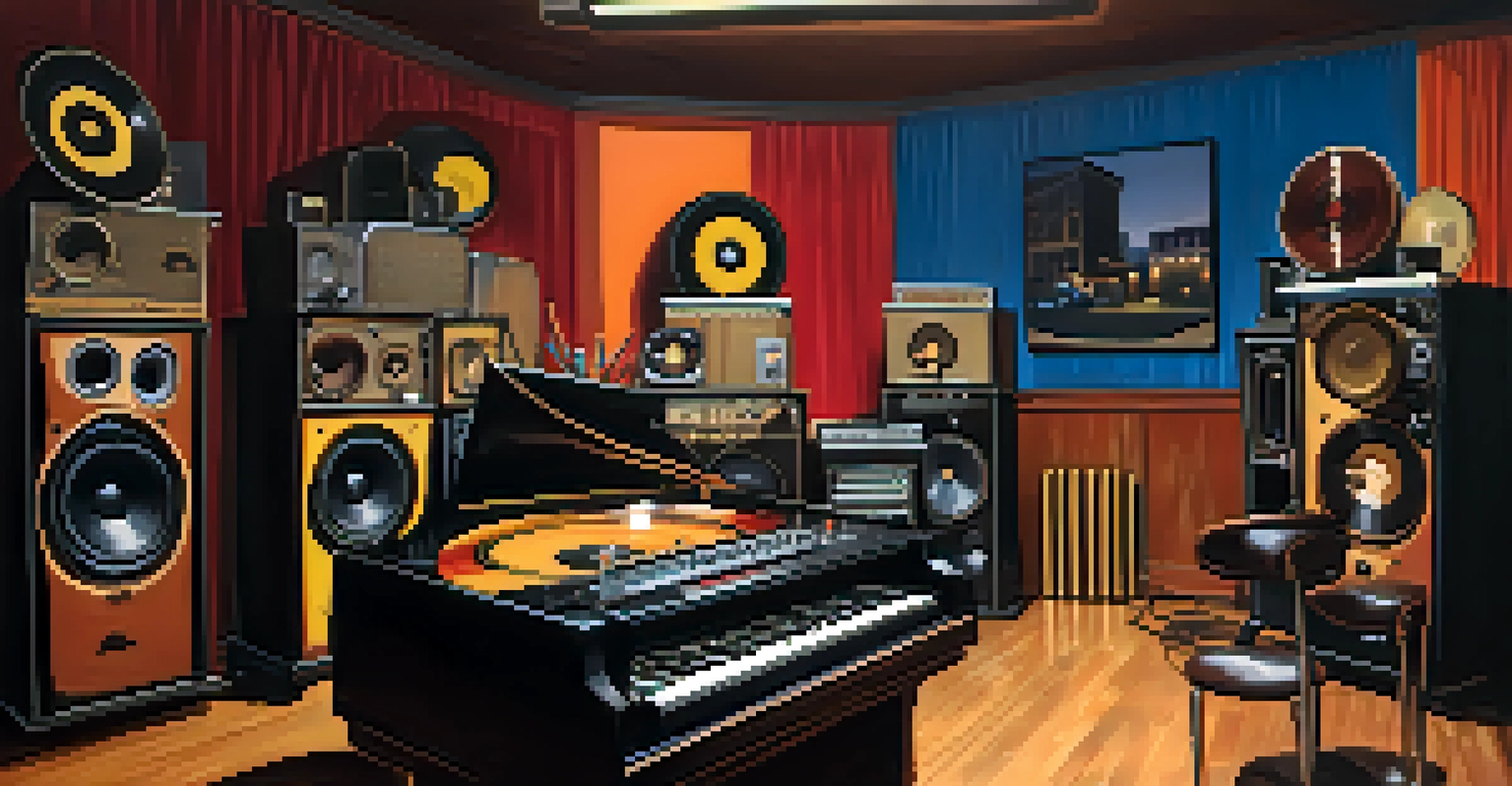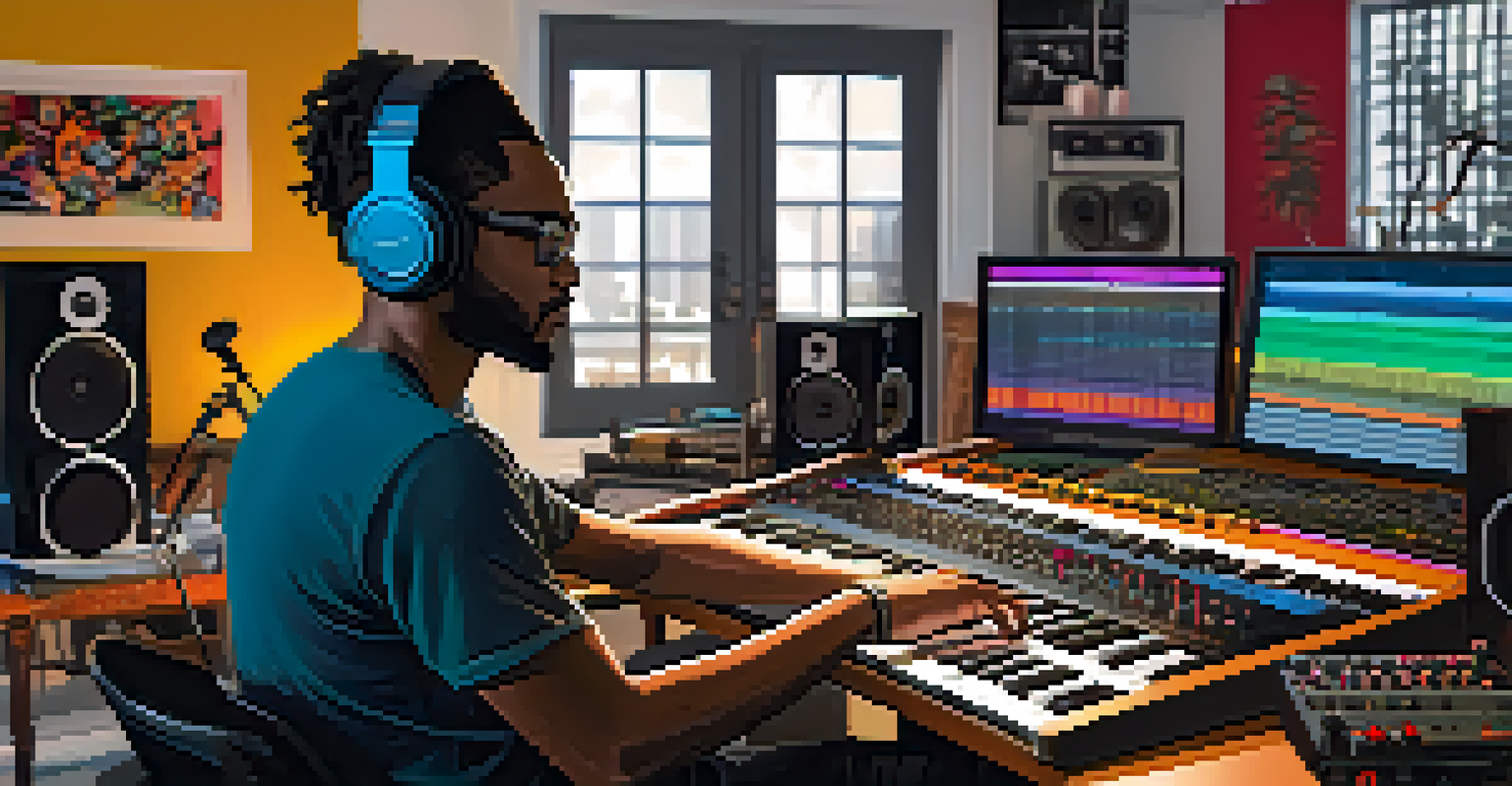Detroit's Musical Legacy: From Motown to Modern Sounds

The Birthplace of Motown: A Cultural Revolution
In the late 1950s, Detroit became the epicenter of a musical movement that would change the world: Motown. Founded by Berry Gordy Jr., Motown Records introduced a unique sound that blended pop, soul, and R&B. Artists like Marvin Gaye, Diana Ross, and Stevie Wonder were not just musicians; they became cultural icons, paving the way for future generations.
Detroit is the place where I learned to dream, to create, and to be a part of something bigger than myself.
The Motown sound was characterized by catchy melodies, polished production, and a rhythm that made you want to dance. This new genre didn’t only resonate with African Americans; it crossed racial boundaries, bringing diverse audiences together. The label’s 'Hitsville U.S.A.' studio on West Grand Boulevard became a pilgrimage site for music lovers.
Motown’s influence extended beyond music; it shaped fashion, dance, and social movements. Its success showcased the power of Black artistry in America, leading to broader recognition and respect. Even today, the Motown legacy is celebrated, reminding us of the rich cultural tapestry woven in Detroit.
The Sound of Detroit: From Soul to Rock
While Motown put Detroit on the map, the city’s musical landscape is incredibly diverse. The gritty sounds of rock and punk emerged in the 1960s and 70s, with bands like The Stooges and MC5 leading the charge. This raw energy laid the groundwork for future genres, influencing countless musicians across the globe.

Detroit's music scene didn’t stop at rock; it also birthed the techno movement in the 1980s. Artists like Derrick May and Juan Atkins pioneered this genre, which emerged from the city’s underground clubs. Techno has since grown into a global phenomenon, with Detroit still recognized as its birthplace.
Motown: Detroit's Cultural Legacy
Motown Records revolutionized music in the late 1950s, blending genres and creating a lasting cultural impact.
The fusion of genres in Detroit reflects the city’s rich cultural history. Each musical style tells a story of resilience, creativity, and community. From soul to rock to techno, Detroit’s sound continues to evolve, showcasing the city’s innovative spirit.
The Role of Live Music Venues in Detroit
Live music venues have played a crucial role in nurturing Detroit’s musical talent. Places like The Fox Theatre and The Fillmore have hosted legendary performances, providing a platform for both established artists and emerging acts. These venues are not just about music; they are cultural landmarks that contribute to the city’s vibrant identity.
Music is a world within itself, it’s a language we all understand.
In smaller venues, local artists often find their voice and connect with audiences. Spaces like The Magic Stick and PJ's Lager House foster a sense of community, allowing musicians to experiment and grow. The intimate settings create an electric atmosphere where fans can experience music up close and personal.
Detroit’s live music scene is a testament to the city’s resilience and creativity. Despite challenges, these venues continue to thrive, offering a space for diverse sounds and styles. They keep the spirit of live music alive, ensuring that Detroit remains a significant player in the global music landscape.
Influential Artists Who Shaped Detroit’s Sound
Detroit has produced countless influential artists who have left a lasting mark on the music world. From the soulful melodies of Aretha Franklin to the gritty riffs of Jack White, each artist has contributed to the city’s rich musical narrative. Their unique styles and stories reflect the diverse experiences found within Detroit.
Not only have these artists achieved commercial success, but they have also inspired movements and shaped genres. For instance, Eminem brought hip-hop to the forefront, showcasing the raw talent that Detroit has to offer. His journey from the streets of Detroit to global stardom is a powerful testament to the city’s creative spirit.
Diverse Sounds of Detroit
Detroit's music scene encompasses a wide range of genres, from rock and punk to techno, reflecting the city's rich cultural history.
These musicians' legacies continue to influence new generations of artists. Their stories resonate with aspiring musicians who draw inspiration from their journeys. Detroit’s musical heritage is not just about the past; it’s a living, breathing entity that continues to evolve.
The Evolution of Music Education in Detroit
Music education has always played a vital role in sustaining Detroit’s vibrant music scene. Programs in schools and community centers nurture young talent, providing them with the skills needed to excel. Organizations like the Detroit Symphony Orchestra and the Detroit School of Arts are essential in fostering the next generation of musicians.
In recent years, there has been a growing emphasis on making music education accessible to all. Initiatives aimed at underserved communities help bridge the gap, ensuring every child has the opportunity to explore their musical talents. This commitment to inclusivity is vital for the city’s cultural future.
As Detroit continues to evolve, the importance of music education cannot be overstated. It cultivates creativity, discipline, and collaboration among young individuals. By investing in music education, Detroit is not just preserving its legacy; it’s also paving the way for future artists to shine.
The Impact of Technology on Detroit's Music Scene
Technology has transformed the way music is created, distributed, and consumed, and Detroit is no exception. With the rise of digital platforms, local artists can share their music with a global audience. This accessibility allows for a diverse array of sounds to emerge from the city, reflecting its rich cultural tapestry.
Moreover, technology has changed how music is produced. Home studios and digital audio workstations enable artists to create high-quality recordings without the need for expensive studio time. This democratization of music production has led to a flourishing underground scene, with many artists experimenting with new genres and styles.
Future of Music Education in Detroit
Investing in music education is crucial for nurturing new talent and preserving Detroit's vibrant musical landscape.
As Detroit embraces these technological advances, it remains a hub for innovation in music. The city’s artists are not just keeping up; they are setting trends and pushing boundaries. This fusion of tradition and technology ensures that Detroit’s musical legacy continues to thrive.
Looking Ahead: The Future of Detroit's Music Scene
As we look to the future, Detroit’s music scene is poised for exciting developments. With a new generation of artists emerging, the city is brimming with fresh talent and innovative sounds. This evolution is a natural progression, carrying forward the rich legacy established by past legends.
Collaboration among artists, producers, and local institutions will be crucial in shaping the future. By working together, the music community can create an even more vibrant scene that reflects the diverse voices within Detroit. This collaborative spirit will help ensure that the city remains a significant player in the global music landscape.

Ultimately, Detroit's musical legacy is not just about the past; it’s a living, breathing entity that is constantly evolving. Whether through live performances, new genres, or innovative technologies, the spirit of Detroit will continue to inspire and resonate with music lovers worldwide.